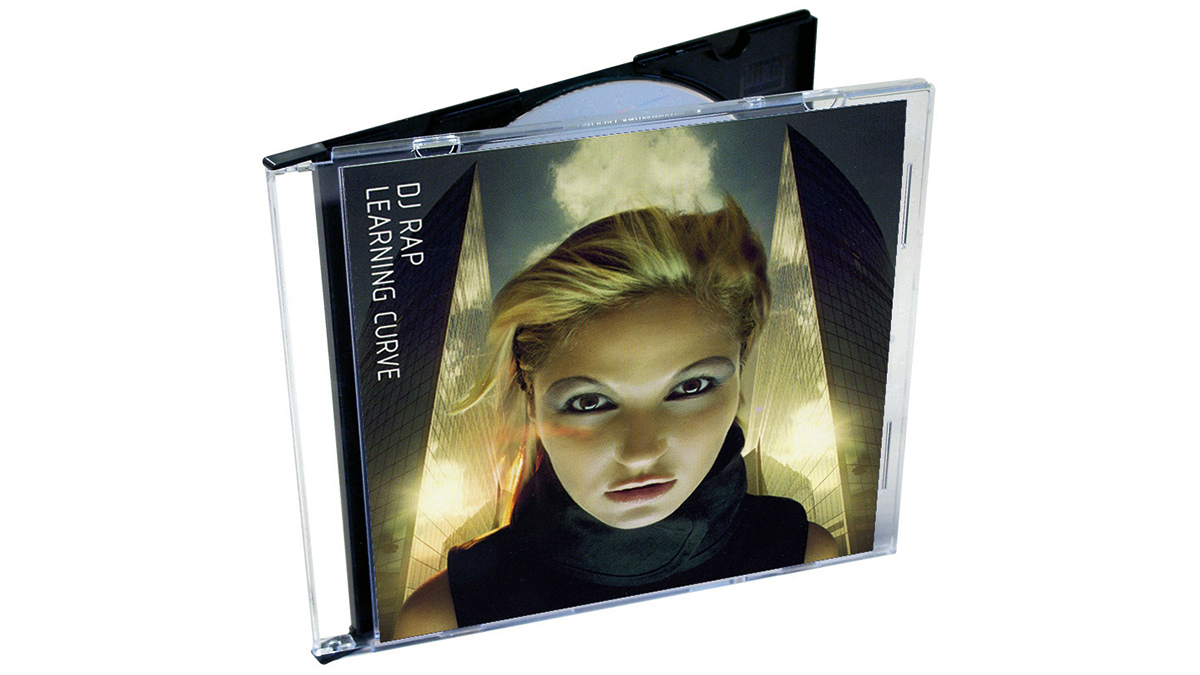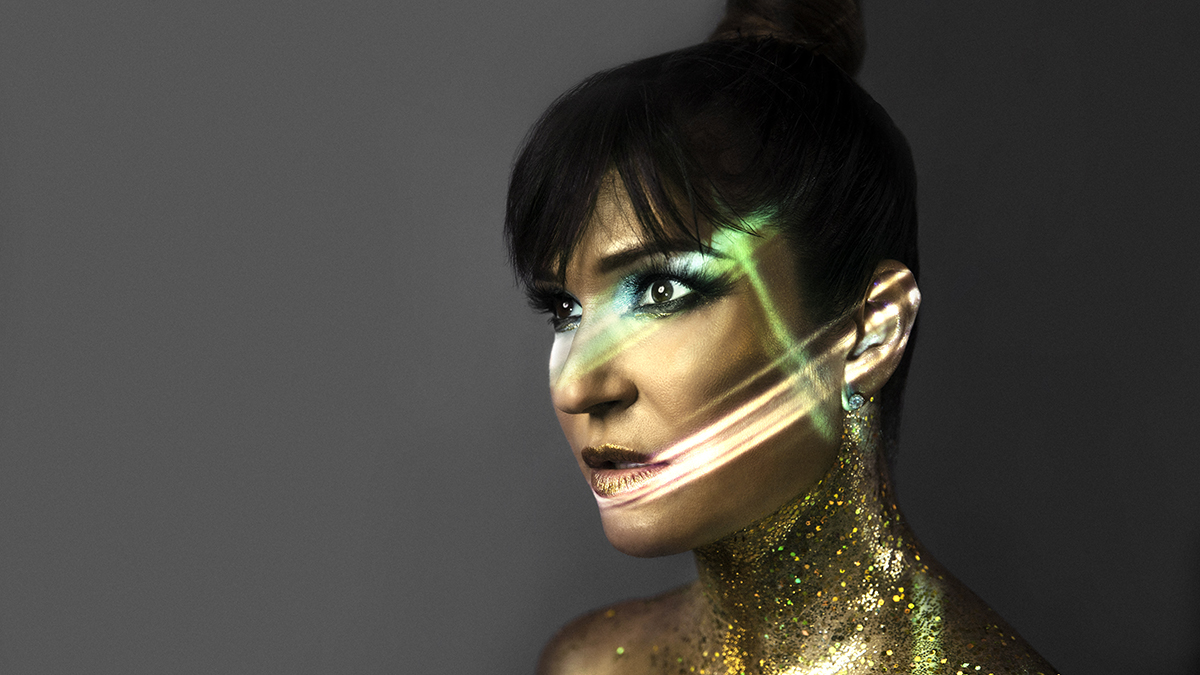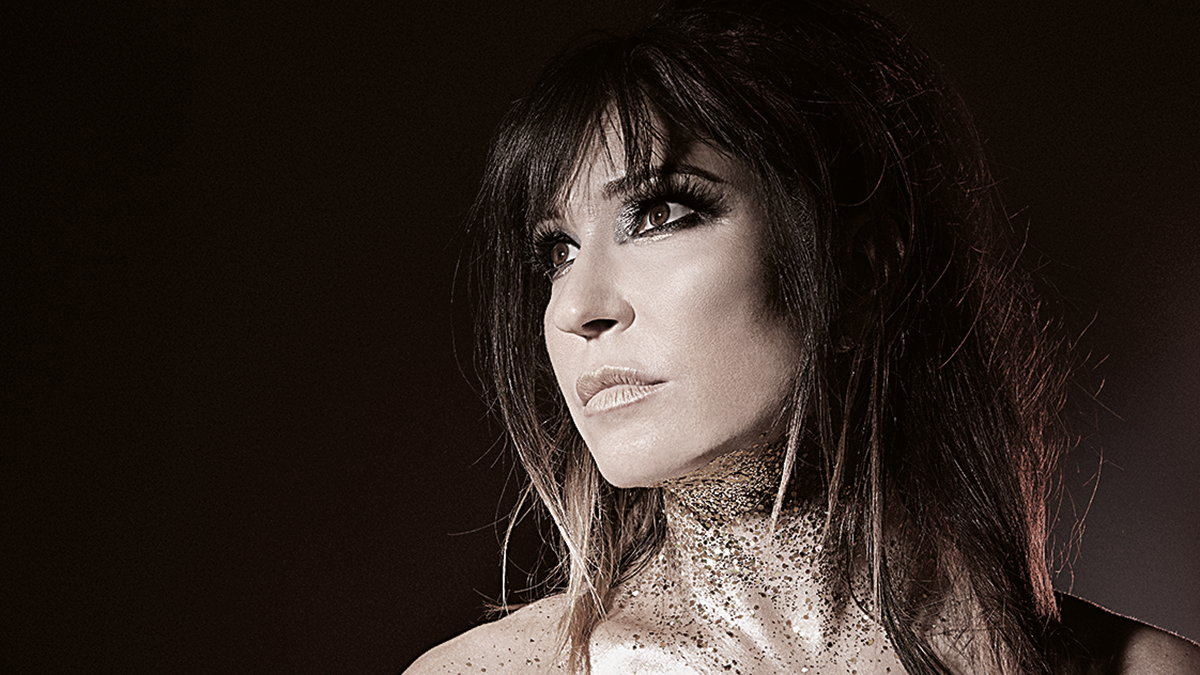Classic album: DJ Rap on Learning Curve
“It changed my life. I went off and worked with everyone from David Bowie to Green Day after that"

Want all the hottest music and gear news, reviews, deals, features and more, direct to your inbox? Sign up here.
You are now subscribed
Your newsletter sign-up was successful
Charissa Saverio (aka DJ Rap) had been tearing up the drum & bass scene for most of the ’90s, with tracks like Spiritual Aura helping define the genre along the way. So, when it came time for her first artist album, a long player of chemical breaks, dark electro pop, and guitar-based songwriting, may not have been what her legion of junglistic fans were expecting.
“It made sense to me,” says Rap. “I never really gave a shit whether or not anyone expected this album to be all jungle.”
The signs were there, though. The track Two Loves from the DJ Rap & Voyager album, Intelligence, is ground zero for all that. It was the song that caught the ear of Columbia/Higher Ground A&R guy Mick Clark, who signed her on the strength of it, demanding more of the same.
Charged with baring her soul and exploring this side further, she holed herself up in co-writer Bill Baylis’ bedroom studio, and the pair drafted the intimate demos of what would then become Learning Curve.
Aptly named it was too. Along the way she’d taught herself to sing and write songs way out of her dancefloor comfort zone. To beef up the demos, Madonna and Massive Attack collaborators Dom T and Aidan Love, as well as a raft of world-class musicians, were drafted in, and the team then set to work, framing Rap’s twisted, conscious lyrics with whatever musical backdrops took their fancy.
“I was really excited about blending styles,” says Rap. “There’s music from India, Africa, tech house, The Prodigy... mixed with Genesis and rock. I wanted something that would incorporate stuff I’d grown up with, plus the stuff I was feeling now. We didn’t know or care if anyone else would get it...”
They did. “The album went double platinum, selling a million, and spawned two UK top 30 singles along the way,” says Rap. “It changed my life. I went off and worked with everyone from David Bowie to Green Day after that.
Want all the hottest music and gear news, reviews, deals, features and more, direct to your inbox? Sign up here.
“You have successful drum & bass DJs, but how many have played at rock stadiums with these huge stars? This record did that for me.”

Bad Girl
“A lot of these songs are quite revealing of how I was feeling at the time. Bad Girl was a political song about self-esteem, the glass ceiling, and how it felt to be a woman, being held back and not being allowed to realise your full potential.
“I was surprised at the amount of flak I got making this record. But looking at what everybody is doing now I have a feeling of smug satisfaction [laughs]. I knew society would shift this way, how could it not?
“If you read my autobiography [Intelligent Woman out now on Music Mondays] you’ll see where all this shit came from, for me. There were very deep reasons. Women deal with a lot of stuff everyday.”
Good To Be Alive
“This is very personal, too. Without getting too dark, I survived some really tough stuff, as well as some suicide attempts, so that was a song about that.
“Kinda like, no matter how bad things might get, I’m so glad I’m still here, because if I’d followed through on some things it would have been a shame, shall we say [laughs].
“This track is just about feeling how lucky I am to make it through and get to the other side after all the damage I did to myself with drugs, and how much I hurt myself in the early years of my life. And why I’ve spent so long repairing myself.”
Fuck With Your Head
We threw away the book with the arrangement. No rules. We just disappeared up our own arseholes and had a technical wank. This song was about gear and machines.
“I think of this as one of the first dubstep explorations, in a sense. If you listen to it, it’s absolutely fucking dubstep and trap, and all that stuff, with those beats and half speed.
“It was an exploration into technology. That track was just Bill [Baylis, co-writer] and I saying to each other, ‘How far up our own fucking arses can we get?’ That’s really what it was. We set out to make the most trippiest and fucked up sounding track we could.
“We threw away the book with the arrangement. No rules. We just disappeared up our own arseholes and had a technical wank. This song was about gear and machines.”
Bad Behaviour
“This is a fun song. It’s all about imagination. I just pretended to see what it would be like to be like a guy for once, and just be a fucking slut. It was about celebrating that side of yourself. I was tired of being good.
“Musically it was very Chemical Brothers. A lot of the time on the drums we used a Morley pedal to get that kind of metallic sound. We would run the beats through amps, just to get that metal sound. It’s a very robotic record. Very industrial. Lots of clinks and clanks.
“I always said to Bill when I was making this record that I wanted to hear a 100 miners in a mine clinking with hammers. Like the Minotaur. The beats needed to be slamming.”
Everyday Girl
“This song was totally straight from the heart. It’s a big thank you to Mick Clark at the label, Higher Ground. That’s what the chorus is saying.
“It was also me being a bit paranoid, because it was all getting so big. This was a way of me holding onto myself, and trying to keep grounded. Even though I’ve sold over three million copies of my music worldwide there was a lot of hate so I go into that in the lyrics, too.
“We made a video for this. It’s me in a big city surrounded by fucking aliens. I love that video.”
You Get Around
“This is about a boyfriend cheating, and about payback. We wanted that live sound, and both us and the band we had working with us on the album were huge jam freaks. It was just like, ‘Let’s play! Let’s see what happens’.
“We’d be in Strongroom studios, recording everything. Those elements weren’t in the original demos. We’d just let the tape roll when we did these live takes.
“The drums at the end of this track are a bit flat, though. It’s all live drumming, but Mark Roberts, who played the drums, had a drum machine and triggered hits we’d made in the studio. Then we had mics set up strategically to capture certain parts of the drum sounds.”

Human Kind
Back then I was like, ‘Fuck it! I wanna make what I wanna make, and you can all go fuck yourself’.
“This track is a metaphor for how I felt growing up. I didn’t feel like I belonged to the race. I pretended in the song that I was an alien, and couldn’t get used to the atmosphere.
“The music we made for this was very Massive Attack-y. We were looking for that dark, trip-hop vibe. Almost Tricky-esque. At the time his album, Mezzanine and records like that were a huge influence.
“For me, this whole album was all about experimenting with the sounds that were out there at the time. I never want to make the same fucking record. I wanted to make something that was experimental.
“Back then I was like, ‘Fuck it! I wanna make what I wanna make, and you can all go fuck yourself’.”
Live It For Today
“This is rock ‘n’ roll fun, just about being grateful for being alive.
“When I first wrote the first verse Iwas just having the strangest of days, and sitting with a beautiful sun beam hitting my face. I just felt close to God. You know that feeling? That feeling that you’re so small and the world is so big. It was a sitting-on-top- of-the-Grand-Canyon-type feeling, being miniscule.
“It’s a spiritual song about the magnificence of life and how amazing it is in all its forms. For me, that song was just about life. Just live! Life is for living. We’ll just stumble our way through it all.”
Go
“...whereas this is about doing acid [laughs]. It’s a hallucinogenic song.
“It was just so much fun to get Simon [Stewart] to play that guitar riff, sample him, then recreate it on the keys so it sounded syncopated. The live guitar became un-live, but used his notes, which was really cool.
“It had an almost Knightrider TV show theme sound. I wanted that. It’s just a really trippy song about hallucinogenics, what they do to you and how it feels and blah, blah blah.
“Then we brought in that Beatles, Ian Brown, baggy, psychedelic Manchester sound, a Verve-like vibe. Thinking back to this song I get that aerial, surreal vibe, but created with a keyboard rather than a guitar.”
Stories From Around The World
“This is literally about tour life, backed with music collected from all over the world. We worked with [Sri Lankan Tamil musician] Manickam Yogeswaran, and he was incredible. When he walked into the studio mine and [engineer] Aidan’s jaws dropped. They were on the floor! He did it all in one take. He was just like, ‘Thank you very much’, and walked out. It was fucking amazing, what he did.
“It was originally called, ‘I Think The Angels Have Left Me’ and it had me singing ridiculous lyrics like, ‘I think the angels have left me/I think the Tooth Fairy died’. Dom T, the producer, just went, ‘Oh, hell no!’
“So we made it an instrumental and got Yogeswaran in to give it another feel.”
Changes
“This is a DnB one. It’s also about mental health and homelessness. It’s actually my least favourite.
“The beats and bass are cool. We always tuned our beats to our basses. In those days it was all about sub bass and 808s.
“It was quite a basic song. Which is probably why I didn’t enjoy it as much as the others. It was more about letting the vocal come through and letting the track be about that. I wanted to let the story shine, not the beats, so I put sub bass in there, rather than live. We didn’t run it through pedals; we didn’t do any of that. Just simple.”
Ordinary Day
“This is my ode to the scene and people like Derrick May and the whole Detroit crew. I loved tunes like Strings of Life [which is sampled here]. I mean, come on! These were tracks I was doing acid to even before IwasaDJ.
“I started raving in 1986. So it was people like Todd Terry, Dave Angel... these guys. Fast Eddie and the Chicago sound. I’d go to the Energy raves, the Genesis raves. All that stuff. I wanted to do something that showed where I came from.
“I don’t come from drum & bass, no matter what you think. I come from house. This is what got me into the scene and saved my life.
“So, I took that sound and when I got Simon to play it acoustically, my heart just broke. It was so beautiful. I just had to sing something. I wanted it to be as sweet as can be, because that’s what these songs meant to me. It had to be beautiful, as that’s how I felt about those days raving.”


Future Music is the number one magazine for today's producers. Packed with technique and technology we'll help you make great new music. All-access artist interviews, in-depth gear reviews, essential production tutorials and much more. Every marvellous monthly edition features reliable reviews of the latest and greatest hardware and software technology and techniques, unparalleled advice, in-depth interviews, sensational free samples and so much more to improve the experience and outcome of your music-making.
